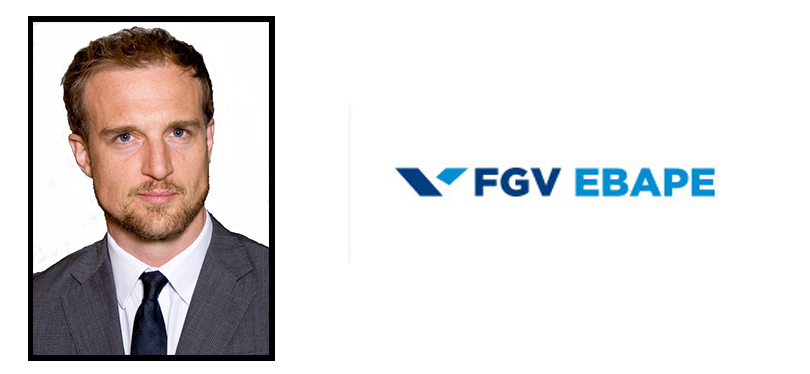Fion Veseli works as a Junior Data Analyst at Vermetten and has made an impressive mark on the Advisory team in a short time. Read below how he likes

Over the past five years or so, Brazil has witnessed a transformation in the rule of law quite unlike anywhere else.
Orchestrated by the Worker’s Party (PT) of President Luiz Inácio Lula da Silva, the Mensalão was a scheme whereby leaders laundered money for fake government advertising contracts through state-owned banks, using the cash to then pay legislators for their votes in congress. This scandal has generated a flurry of laws and judicial decisions that are currently transforming a political landscape of impunity into… well, a political reality that has yet to reveal a stable equilibrium. A few of these transformative initiatives include.
1. A freedom of information law (12.527) that has begun to lay bare bureaucratic cultures of secrecy, inefficiency, incompetence and – all too frequently – corruption.
2. Laws on Criminal Organizations (12.850) and Anticorruption (12.846) that include generous reductions in penalties in return for inculpating evidence on corruptors and corruptees (plea bargaining measures). This law has led to exponential finger-pointing among corrupt politicians and business operators keen to reduce their penalties.
3. A decision by the Supreme Court to allow for the imprisonment of suspects after a guilty verdict has been handed-down by a bench of judges after a first appeal. This decision reverses previous precedent, wherein imprisonment occurred(incredibly rarely) only after all appeals had been exhausted.
Only a year after the Mensalão criminal trial had wrapped up, the Petrolão exploded onto the scene, the result of anomalies found in big-data based analyses of data from the state oil company, Petrobras. The Petrolão, which includes the famous Lava Jato (Car Wash) investigation, has only added fuel to the fire. The Petrolão is not dissimilar to the Mensalão: legislative allies of the ruling coalition received kickbacks from contracts and acquisitions undertaken by Petrobras and its suppliers – in return for support in congress.
TRANSFORMATION HINGES ON NEWS MEDIA COVERAGE
Here, I argue that whether this conflagration of political scandals will lead to real, lasting, and systemic transformation hinges largely on the prospective accountability role of the news media. While the media may provide skilled portraits of what happened and who is to blame (retrospective accountability), they have been weaker on what is the source of these constant scandals and what to do about it (prospective accountability). There are at least two critical rationales behind media weaknesses.
“Corruption is rooted in political finance and the party system.”
On a first level, the media is badly regulated in Brazil. Rules are comparatively lenient regarding ownership – both horizontal and vertical. Media law is anachronistic in Brazil: the broadcasting law is from 1962, and the constitution provides that congress establish who obtains broadcasting and radio licenses. This attribution gives Congress significant power over the news media, and generates a quid pro quo relationship with media owners (many of which are politicians) that is unhealthy for democracy. Through ‘dividing and conquering’ the media has ensure that coalitional blocks for media reform do not emerge. Brazil’s fragmented party system and congress has facilitated the growth of media oligopolies, such as the Globo Network, which after ABC (US) is the largest television network in the world and has the highest market share of any cable news program in the world.
On a second level, and quite understandably given the rationale outlined above, the news media has little interest in seeing the electoral system change. The Mensalão and Petrolão have clearly demonstrated that corruption is rooted in political finance and the party system, which, as a democracy, has the highest number of effective parties in the world, nearly a third more than second-place Indonesia. The news media are the beneficiaries of this trough of political parties, as advertising dollars roll in during electoral periods. Why ruin a good thing? Although there are very large citizen movements attempting to reform the electoral system, they receive barely any coverage. Nor does the topic of electoral reform itself.
THREE OBSTACLES TO REFORM
Brazil’s political elite, legal elite, and media elite are trapped by pernicious informal institutions, which are tough to break. These may prevent Brazil from using the current crisis to vitalize greater institutional resilience and strength.
“The news media is ineffective at giving voice to advocates or real reform.”
First, the political elite is compromised ethically and tends to be more private-regarding than public-regarding; self-interest usually comes first, the public interest last. There is no group of legislators that have the integrity and ideological moderation to lead a drive for reform.
Second, Brazil’s legal elite believe themselves above the rule of law. Indeed, FGV transparency audits as well as a study by Article 19, an NGO, show that as sectors of government the Public Prosecutor and the Judiciary demonstrate the lowest adherence to basic transparency obligations, as established in 2011 by Brazil’s new access to information law. These results communicate the attitude of being ‘above the rule of law’.
Third, as I write about above, the news media is ineffective at giving voice to advocates or real reform.
This leaves Brazil in a quandary.
Who moves reform forward? As I have suggested, Brazil’s provisions for popular petitions appear to be perhaps the best solution. As it stands, Brazil’s prosecutocracy is undoubtedly doing good by purging the system. But an unhealthy system requires perpetual purging – an undesirable situation at best.
For the full article, visit this blog.






















